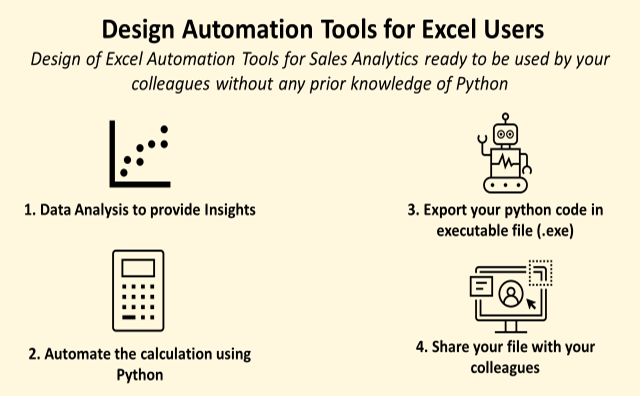In today’s fast-paced business world, automation is key. Automating accounting tasks can save time and reduce errors.
Many businesses are turning to software solutions to streamline their accounting processes. Automation helps manage financial records, track expenses, and generate reports with minimal human intervention. This frees up valuable time for strategic planning and decision-making. Investing in the right tools can transform your accounting department into a more efficient and accurate operation. One such tool is Godlike.Host, known for its high-performance capabilities. By integrating advanced software like this, you can enhance productivity and ensure your financial data is always up-to-date. Discover how automation can revolutionize your accounting tasks and bring about significant improvements in your business operations. To learn more about how Godlike.Host can assist, visit their website today.
Introduction To Automating Accounting Tasks
In today’s fast-paced business world, managing finances manually can be tedious. Automating accounting tasks can save time, reduce errors, and improve efficiency. This section will introduce you to the concept of accounting automation and explain its importance.
What Is Accounting Automation?
Accounting automation refers to using software to handle repetitive accounting tasks. It involves tools that streamline processes such as:
- Data entry
- Invoice generation
- Expense tracking
- Financial reporting
These tools integrate with various financial systems, ensuring accurate and timely data processing.
Why Automate Accounting Tasks?
There are several reasons to automate accounting tasks:
- Time-saving: Automation handles repetitive tasks quickly, freeing up valuable time.
- Accuracy: Reduces the risk of human errors, ensuring accurate financial records.
- Efficiency: Streamlines processes, making them more efficient and less labor-intensive.
- Cost-effective: Lowers operational costs by reducing the need for manual labor.
Automating accounting tasks can improve your overall financial management, making your business operations smoother and more reliable.
Key Features Of Accounting Automation Tools
Automating accounting tasks enhances efficiency and accuracy. Tools like Godlike.Host offer multiple features that streamline accounting processes, saving time and reducing errors.
Automated Data Entry
Automated data entry eliminates manual input, reducing the risk of human error. It speeds up the process and ensures consistency. These tools can extract information from receipts, invoices, and other documents, entering it directly into the system.
Real-time Financial Reporting
With real-time financial reporting, you can access up-to-date financial data anytime. This feature allows for better decision-making and financial planning. Automated tools generate reports instantly, reflecting the latest transactions and financial status.
Integration With Other Software
Integration with other software is crucial for seamless operations. Accounting automation tools can connect with various applications, such as CRM systems, payroll software, and e-commerce platforms. This integration ensures data consistency across all systems and improves workflow efficiency.
Error Detection And Correction
Error detection and correction features identify and rectify discrepancies in financial data. These tools use algorithms to spot anomalies, ensuring data accuracy. This function helps in maintaining the integrity of financial records and reduces the time spent on manual checks.
Customizable Workflows
Customizable workflows allow businesses to tailor processes according to their specific needs. You can set up rules and automate repetitive tasks, enhancing productivity. This feature also enables scalability, as workflows can be adjusted as the business grows.
Benefits Of Automating Accounting Tasks
Automating accounting tasks can bring numerous advantages to businesses. It simplifies complex processes, reduces errors, and saves valuable time. Let’s explore some of the key benefits of automating these tasks.
Increased Efficiency
Automation enhances efficiency by streamlining repetitive tasks. Manual data entry and calculations consume time and effort. Automation tools handle these tasks quickly and accurately. This allows accountants to focus on more strategic activities.
Enhanced Accuracy
Manual accounting is prone to errors. Mistakes in financial records can lead to significant issues. Automation ensures data accuracy by minimizing human intervention. This results in precise financial reports and reliable data.
Time And Cost Savings
Automation saves time by speeding up routine processes. Tasks that once took hours can be completed in minutes. This reduces labor costs and increases productivity. Businesses can allocate resources more effectively.
Improved Compliance
Compliance with regulations is crucial for businesses. Automated accounting systems help maintain compliance by keeping records up-to-date. They also generate accurate reports required for audits and regulatory filings.
Better Decision-making
Accurate and timely financial data is vital for decision-making. Automated systems provide real-time insights into financial performance. This enables business leaders to make informed decisions quickly. Access to reliable data supports strategic planning and growth.

Credit: www.highradius.com
Popular Accounting Automation Tools
In the world of accounting, automation tools have become essential. These tools help streamline tasks, reduce errors, and save time. Below, we explore some popular accounting automation tools, their features, and benefits.
Tool 1: Features And Benefits
- Automation of Invoices: Automatically create and send invoices to clients.
- Expense Tracking: Track expenses and categorize them for tax purposes.
- Bank Reconciliation: Match transactions with bank statements to ensure accuracy.
- Reporting: Generate financial reports like balance sheets and profit & loss statements.
Benefits:
- Time-Saving: Automates repetitive tasks, freeing up time for strategic planning.
- Accuracy: Reduces the likelihood of human errors in financial records.
- Scalability: Suitable for businesses of all sizes.
- Integration: Easily integrates with other business tools and apps.
Tool 2: Features And Benefits
- Invoicing: Create and send invoices, and track payments.
- Payroll Management: Manage employee payroll and ensure compliance.
- Bank Feeds: Connects to your bank and imports transactions automatically.
- Inventory Management: Track inventory levels and manage stock efficiently.
Benefits:
- Efficiency: Automates many accounting tasks, enhancing business operations.
- Real-Time Data: Provides up-to-date financial information.
- Collaboration: Allows multiple users to access and work on financial data.
- Security: Uses high-level encryption to protect financial data.
Tool 3: Features And Benefits
- Personal Firewall: Fine-tuning access for players and blocking unwanted activity.
- Unique Text Editor: Share a link to the config file safely.
- Full Custom Server: Set up server mods, plugins, and game versions.
- Server Rating System: Promote your server and attract more players.
Benefits:
- High Performance: Ensures smooth and low latency server operations.
- Ease of Use: Quick setup process and reliable performance.
- Customization: Extensive options for server setup and management.
- Security: Robust firewall and secure text editor.
These tools can greatly enhance the efficiency and effectiveness of your accounting processes. Choose the one that best fits your business needs.
Pricing And Affordability
When considering accounting software, pricing and affordability play crucial roles. Choosing the right tool involves a balance between cost and value. Below, we explore the key aspects of pricing for accounting automation tools.
Cost Comparison Of Popular Tools
Several popular tools in the market offer various pricing plans. Here is a comparison to help you make an informed decision:
| Tool | Basic Plan | Standard Plan | Premium Plan |
|---|---|---|---|
| Tool A | $10/month | $20/month | $30/month |
| Tool B | $12/month | $24/month | $36/month |
| Tool C | $8/month | $16/month | $24/month |
Value For Money
The most affordable tool is not always the best choice. Consider the features and support each tool offers. Godlike.Host, for instance, offers various features:
- High Performance: Smooth operations with low latency.
- Ease of Use: Quick setup and reliable performance.
- Customization: Extensive server management options.
- Security: Robust firewall and secure text editor.
- Support: Dedicated personal manager for assistance.
- Community Engagement: Server rating system to attract players.
Godlike.Host plans are priced as follows:
| Plan | Monthly Price | Discounted Price | RAM | Slots |
|---|---|---|---|---|
| Double Plan | $7.99 | $6.39 | 2GB | 5-10 |
| Quadro Plan | $15.99 | $12.79 | 4GB | 20+ |
| Ultra Plan | $23.99 | $16.79 | 6GB | 30+ |
Free Trials And Demos
Many accounting software providers offer free trials or demos. This allows you to test their features before committing financially. Here are some examples:
- Tool A: 14-day free trial.
- Tool B: 30-day free trial.
- Tool C: Demo available upon request.
Utilize these trials to assess the software’s suitability for your needs.
Pros And Cons Of Automating Accounting Tasks
Automating accounting tasks can significantly impact your business processes. From enhancing efficiency to potential challenges, there are various factors to consider. Below, we explore the pros and cons of automating accounting tasks.
Pros: Efficiency, Accuracy, And Savings
Automation brings numerous benefits to accounting tasks. Let’s delve into the main advantages.
Efficiency:- Automation speeds up data entry, reducing manual effort.
- Tasks that took hours can now be completed in minutes.
- Automated systems minimize human errors in calculations.
- Consistent data processing ensures reliable financial records.
- Reduced need for manual labor cuts operational costs.
- Long-term savings from fewer errors and faster processing.
Cons: Initial Setup And Learning Curve
Despite the benefits, automation also has some drawbacks that need consideration.
Initial Setup:- Setting up automated systems can be time-consuming.
- Initial cost of software and implementation can be high.
- Employees may require training to use new systems.
- Adapting to new technology can take time and effort.
Who Should Consider Automating Accounting Tasks?
Automating accounting tasks can significantly enhance efficiency, accuracy, and productivity. But who exactly should consider this? Different types of businesses and professionals can benefit from automation. Let’s explore:
Small Businesses
For small businesses, time and resources are often limited. Automating accounting tasks can free up valuable time, enabling business owners to focus on growth and customer service. Automated systems handle invoicing, expense tracking, and payroll with precision, reducing errors and improving financial management.
Large Enterprises
Large enterprises deal with complex financial data and numerous transactions. Automating accounting processes helps manage this data efficiently. It ensures compliance with financial regulations, improves data accuracy, and provides real-time financial insights. Large companies can streamline processes, reduce manual labor, and enhance decision-making with automation.
Freelancers And Independent Contractors
Freelancers and independent contractors often manage their finances single-handedly. Automation simplifies tasks like tracking billable hours, generating invoices, and monitoring payments. It helps them stay organized, save time, and focus on delivering quality work. Automated accounting tools offer an easy way to manage finances without needing extensive accounting knowledge.
Accounting Firms
Accounting firms handle multiple clients and large volumes of financial data. Automating repetitive tasks such as data entry, reconciliation, and report generation increases efficiency. It allows accountants to focus on providing strategic financial advice and personalized services to clients. Automation also enhances accuracy and ensures data security, which is critical for accounting firms.

Credit: medium.com

Credit: alphamoon.ai
Frequently Asked Questions
How Do You Automate Accounting Tasks?
Automate accounting tasks using software like QuickBooks or Xero. Integrate with banking systems, set up recurring invoices, and use expense tracking apps.
Is There A Way To Automate Bookkeeping?
Yes, you can automate bookkeeping using accounting software. Tools like QuickBooks and Xero simplify the process.
What Is An Automated Accounting Process?
An automated accounting process uses software to manage financial transactions, record-keeping, and reporting. It reduces manual errors and saves time.
Is There An Ai For Accounting?
Yes, there are AI tools for accounting. They automate tasks like bookkeeping, invoicing, and financial analysis.
Conclusion
Automating accounting tasks brings efficiency and accuracy to your business. Save time, reduce errors, and focus on growth. Discover tools like Godlike.Host for seamless integration. Visit here to learn more. Embrace the power of automation today. Streamline your accounting process effortlessly. Enjoy more productive and stress-free days.





